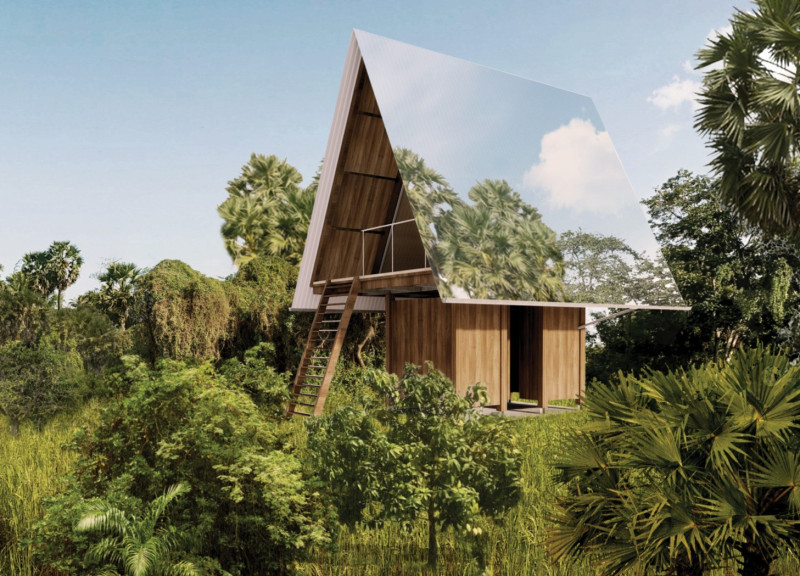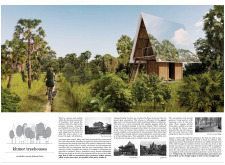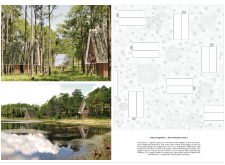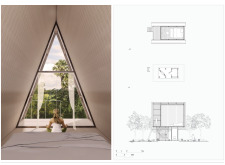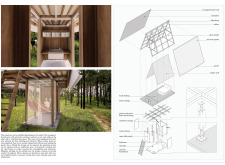5 key facts about this project
The Vine Retreat is located in the calm countryside of Cambodia, designed to provide a peaceful escape from busy city life. The huts serve as elevated spaces for reflection and connection with the land. Drawing inspiration from traditional Khmer architecture, the design aims to create a balance between the natural environment and built forms, resulting in a unique experience for its visitors.
Design Concept
The design integrates elements of Khmer architecture, particularly the gopurams, which are ornate thresholds, and traditional rural houses that adapt to the local climate. The huts take on A-frame shapes, raised on colonnettes, allowing for effective flood management while creating a private space above the ground. This approach also provides room underneath for essential utilities like washrooms and storage, along with outdoor areas designated for meditation.
Material Expression
The roofs of the huts feature angular designs that collect rainwater, contributing to sustainability. Reflective surfaces made of mirrored sheets blend the structures into the surrounding landscape. This design choice helps the huts to visually connect with the forest, allowing them to integrate into the environment and enhancing the immersive experience for visitors as they engage with nature.
Spatial Organization
The arrangement of the huts is purposeful, encouraging community interaction while preserving privacy. Open spaces framed by the huts serve as informal gathering places for activities like campfires and picnics. This thoughtful layout supports social connections among guests, allowing for shared moments while respecting individual needs for solitude.
Elevated Living Experience
The elevated design provides expansive views of the landscape, enhancing the connection between the occupants and nature. This height allows for better sightlines and a sense of seclusion, contributing to the retreat’s purpose as a sanctuary. The combination of reflective surfaces and angular forms creates interesting visual dynamics that change with the light throughout the day, drawing attention to the beauty of the surroundings.


